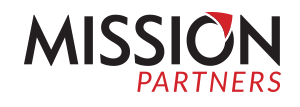The Economics of Inequality
By: May Robinson, Mission Partners Director of Community Engagement
Recording of “The Economics of Inequality”
Highlights from “The Economics of Inequality”
In our last community conversation on race and humanity in the workplace, we emphasized the important step for individuals and organizations to first look inward to understand their roles in maintaining privilege, power, and racist systems and structures. Before we can dismantle white supremacist systems, we must understand our roles in these systems. This led us to our most recent conversation with impact investing expert, Karen Wawrzaszek, on the power that business leaders and philanthropists have to drive the J.E.D.I. principles of justice, equity, diversity and inclusion through how they use, spend, and save money—whether they are intentionally purposeful or unintentionally perpetuating harmful inequities.
Here is a recap of our sixth community conversation hosted on June 25 titled The Economics of Inequality.
On Investing
Currently, there is a large wealth gap and long-standing financial inequities established during the War on Poverty, which make it difficult for people living in poverty to escape it. While there is a long history of efforts to address poverty in the U.S., the data shows we have barely moved the needle on closing the gaps, especially for the Black and Brown communities.
Investments are affirmations. To minimize financial inequality and shrink the wealth gap, rethink how you invest your money. Previously, investors only looked at financial returns, but now, you should consider everything that makes a company profitable—financial and social returns.
Put your money where your heart is. Align your investments with your mission and values. Impact investing, also known as Environmental, Sustainable, and Governance (ESG) investing, allows you to intentionally put money back into your community by investing in organizations that benefit the community. For example: Is the organization paying living wages? Are they hiring a diverse workforce? Are they promoting and elevating the voices of Black and Brown employees? These are all social returns that create a more equitable world. If you commit to only investing in companies paying fair wages, you will help others build wealth.
Reframe how you think of stakeholders. Wealth disparity grows when you only have one stakeholder—the investor. Expand who you believe you are impacting when you invest in a company—its employees, supply chain, and community. Invest your money in the companies that are also investing in their larger community and helping their employees build wealth through fair wages, retirement plans, and healthcare and childcare benefits.
The Triple Threat of Inequality
We are worse than when the War on Poverty started fifty years ago. If we inflate and adjust the poverty gap, it is worse than it was fifty years ago. These are the systems that affect the most people living in poverty:
-
-
-
- Education: Currently, funding for schools is inequitable because it is based on property taxes. Resources are not fairly allocated to all students because students in wealthier communities often have better resources. One example of the broken educational system during COVID-19 is that all learning transitioned to distance-learning. Many students living below the poverty line did not have access to broadband Internet or reliable devices.
- Workforce: Our society must change the way we view success. Due to the very high cost of higher education in the U.S., people living in poverty have less access to completing college degrees. College degrees are not the only option for career development as there is also a lot of value in apprenticeship programs. Apprenticeships can help people build the skills needed to acquire higher wage jobs, without incurring debt from a college degree. We should invest in organizations that are offering apprenticeships and those that value these alternate paths to success, which will allow people to advance their careers and continue to build wealth.
- Healthcare: For employers, offering quality healthcare plans to their employees is one of the greatest wealth-building benefits. Healthcare costs are expensive, and without employer benefits, many people cannot build their wealth due to a large percentage of their income being allocated to healthcare premiums and services.
-
-
Calls to Action
We are upholding white supremacist systems within our organizations. Whether we realize it, many of our organizational policies and practices are rooted in white supremacy. Take some time to take a look at your existing policies and practices. Then, get to work on purposefully changing problematic policies and practices.
Hire and support a diverse workforce. This allows you to get in close proximity with people who may not look like you, live like you, or experience life like you. It’s important to consider diverse perspectives when developing 401k offerings, health plans, and other benefits and policies needed to help your employees grow their wealth. Their needs may be different than your needs, and it’s important to understand this as you shape your policies and practices to become more equitable. In addition to hiring, ensure you are creating a culture that ensures your Black and Brown employees feel valued and supported in their career growth.
Assess all the people your business touches. Everyone around you—employees, contractors, clients, vendors and suppliers—should all align with your values.
Consider impact investing for your 401k program. This will make sure that not only are you creating wealth-building opportunities for your employees through a 401k program, but you are also investing your dollars back into the community for social returns. Choose to only invest in organizations aligned with your own mission and values.
Offer healthcare and/or childcare benefits. Healthcare and childcare are two of the largest costs for American families, outside of housing. Offering some kind of healthcare and/or childcare benefits will support your employees in building wealth because these are dollars they can reallocate to their 401k, savings, or other investments back into their families and communities.
What’s Next?
At Mission Partners, we are intentional about centering the J.E.D.I. principles of justice, equity, diversity, and inclusion in all we do. We conduct regular audits and updates to our own policies, practices, and communications to ensure we are doing our part to advance equity within our own organization. We have also helped other organizations improve their own policies, practices, and communications, as well as facilitate trainings on how to create more equitable organizations and messaging. Contact us today to chat about how we may be able to help with this process.





 Check out our new
Check out our new